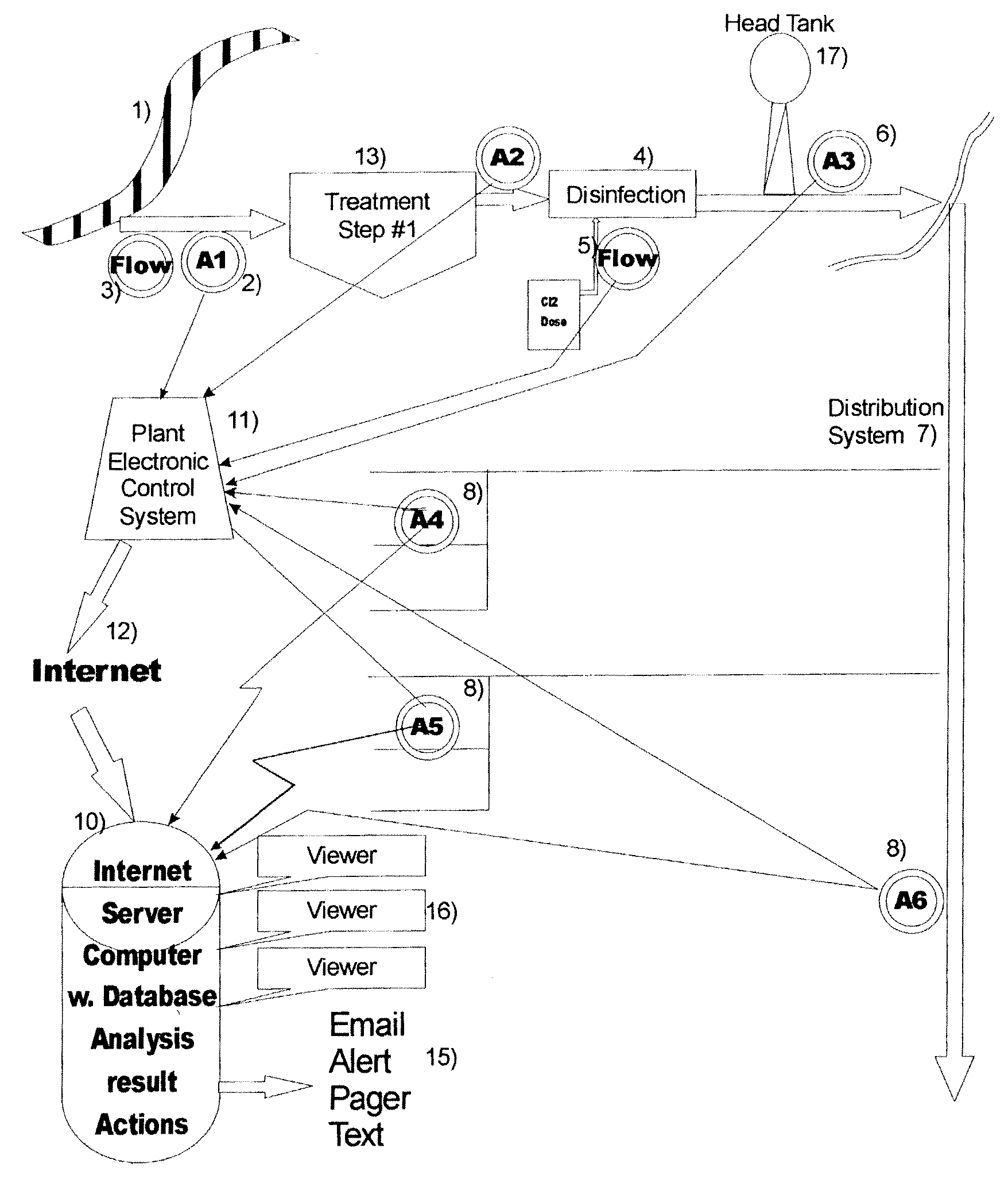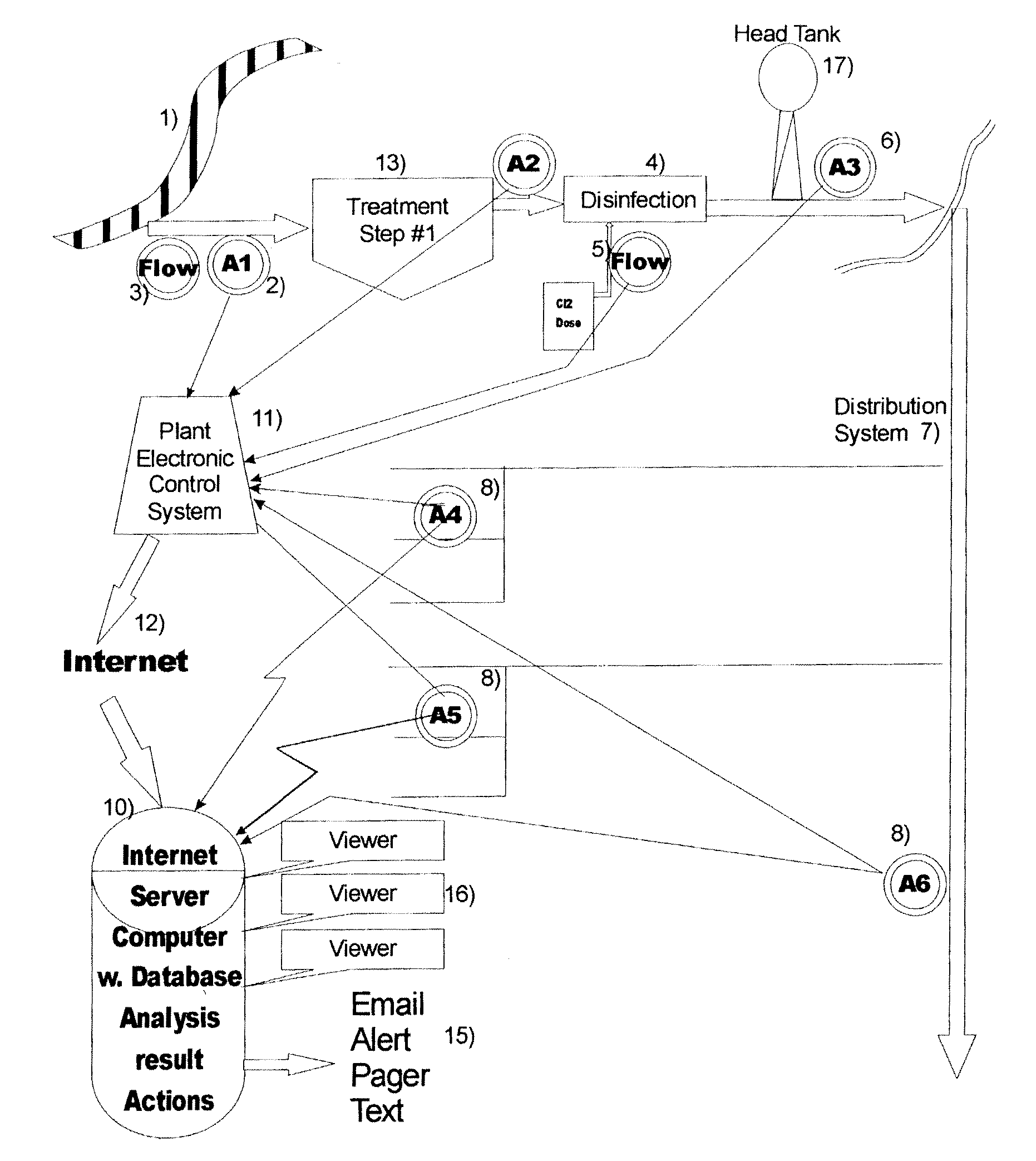Anti-terrorism water quality monitoring system
a water quality monitoring and anti-terrorism technology, applied in the field of water treatment, can solve the problems of affecting the amount of disinfectant required to achieve the inactivation of biological organisms, affecting the amount of disinfectant required affecting the ability of disinfection residuals to reach the distribution system, so as to prevent any possible hacker attack
- Summary
- Abstract
- Description
- Claims
- Application Information
AI Technical Summary
Benefits of technology
Problems solved by technology
Method used
Image
Examples
Embodiment Construction
[0022]Referring to FIG. 1, which shows a typical water treatment facility and distribution system, water from the supply (1) is pumped to the treatment plant. Analyzer A1 (2) and flow meter (3) collect data on the raw water supply. Analyzer A1, analyzing for turbidity, temperature, and possibly TOC (Total Organic Carbon) are not strictly necessary but if present provide better predictive reliability.
[0023]Treatment step (13) typically consists of settling and filtration to remove suspend matter. Analyzer A2 (14) monitors the efficiency of the treatment step. Disinfection step (4) allows chlorine dosed from the chlorine dosing station (5) to contact the water for a period of time, variable depending on temperature and organic matter loading in the supply water. Analyzer A3 (6) verifies that the disinfection step is working by measuring chlorine residual before entering the distribution system (7).
[0024]Analyzers A4, A5, and A6 (8) analyze for chlorine residual in the distribution sys...
PUM
| Property | Measurement | Unit |
|---|---|---|
| electronic transmission | aaaaa | aaaaa |
| concentration | aaaaa | aaaaa |
| turbidity | aaaaa | aaaaa |
Abstract
Description
Claims
Application Information
 Login to View More
Login to View More - R&D
- Intellectual Property
- Life Sciences
- Materials
- Tech Scout
- Unparalleled Data Quality
- Higher Quality Content
- 60% Fewer Hallucinations
Browse by: Latest US Patents, China's latest patents, Technical Efficacy Thesaurus, Application Domain, Technology Topic, Popular Technical Reports.
© 2025 PatSnap. All rights reserved.Legal|Privacy policy|Modern Slavery Act Transparency Statement|Sitemap|About US| Contact US: help@patsnap.com


